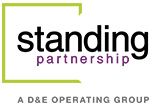6 Trends in Sustainability Reporting to Watch This Year
We already have an eye on the emerging trends in sustainability reporting that your company needs to know. Check these out and contact us with questions.
We are deep into sustainability reporting season, but already have an eye on the emerging trends in sustainability and regulatory changes that are impacting the next year of communications. Here are six trends to keep in mind as your company thinks about sustainability reporting this year:
- After climate, biodiversity will be the next major environmental topic where companies will be expected to take action. This was solidified at the end of 2022, when the United Nations Biodiversity Conference established a landmark agreement to guide global action on nature through 2030. While some industries, like mining, have long considered how to restore the natural environment their business relies on, a focus on biodiversity will be new territory for many companies. Now is the time to consider how your company impacts biodiversity (hint: it may be in your supply chain) and identify ways you can better manage these impacts, so you’ll have concrete progress to report in the coming years.
- Speaking of supply chain, the verdict is still out on SEC’s requirements regarding Scope 3 emissions. The U.S. Securities and Exchange Commission’s (SEC) proposed rule to require publicly traded companies to disclose several climate-related points, including the greenhouse gas emissions (GHG) coming from your upstream and downstream value chain, has been challenged and may not stick. However, the stakes have definitely been raised. If you aren’t considering the impacts of your value chain, both related to GHG emissions and other sustainability reporting topics, here are some tips on supply chain sustainability issues to get started.
- More companies are moving to one comprehensive sustainability report that covers multiple frameworks. One of the trends in sustainability reporting for 2023 is cause for celebration – it means only one report for your team to develop and gives your stakeholders a more complete, one-stop-shop for all of your sustainability reporting information. It’s also more efficient since much of the information requested by GRI, SASB and TCFD* overlaps.
- Those lofty goals need specific roadmaps, short-term targets and reporting on progress. The increased adoption of TCFD, which requires roadmaps, and the rise in public carbon reduction and DE&I commitments have led to expectations that companies have outlined plans and short-term milestones for how they will achieve their goals. As concerns of greenwashing continue to rise due to some companies making false claims on their sustainability efforts, be prepared to speak to the quantifiable plans and the progress you are making. With this requirement also comes expectations that executive pay be tied to sustainability reporting goals, such as climate response, workforce safety and diversity metrics, as another way to demonstrate your company is walking the walk.
- Prepare for sustainability reporting claims to be challenged. Greenwashing lawsuits are happening, in which companies are being called out for making sustainability-related claims about their products or business practices that they can’t back up. It’s important to ground your sustainability messaging in data-based frameworks that provide credibility and to share your company’s targets, roadmaps and progress, so stakeholders can understand your journey. Third-party data assurance is also valuable.
- While reports are getting more comprehensive, they also should be designed to be chunked out in digestible segments. Companies continue to move more of the sustainability reporting online, which makes it easier for stakeholders to search for specific information. We also see more people adopt downloadable pieces, such as investor summary sheets, data-only sheets or overviews on specific topics, so readers can select what matters most to them.
Investors, customers, suppliers and employees will increasingly seek out companies that have a proven sustainability reporting track record – do your current sustainability communications stand up to the test? Whether you are reporting for the first time, the fifteenth time or just dipping a toe into understanding sustainability, Standing is here to help. Contact us at inquiries@standingpartnership.com.
*
GRI: Global Reporting Initiative
SASB: Sustainability Accounting Standards Board
TCFD: Task Force on Climate-related Financial Disclosures
Featured Insight
Why B2B Companies Need a Sustainability Reporting Strategy
B2B companies are facing increased pressure from investors, regulators and customers to start—or improve—reporting on sustainability matters. Climate change, employee health and safety, DEI—companies today are facing these important issues…

